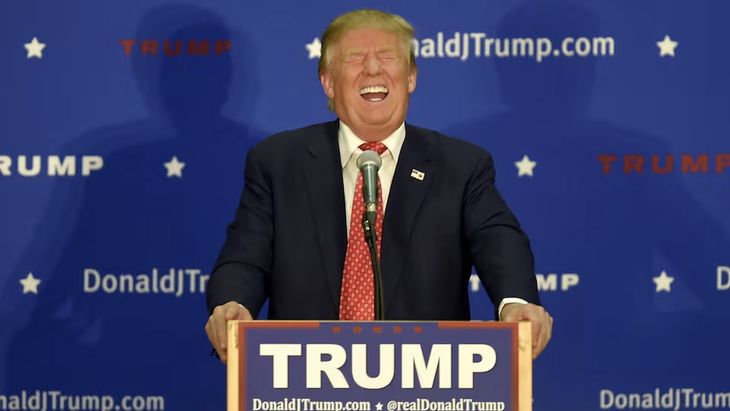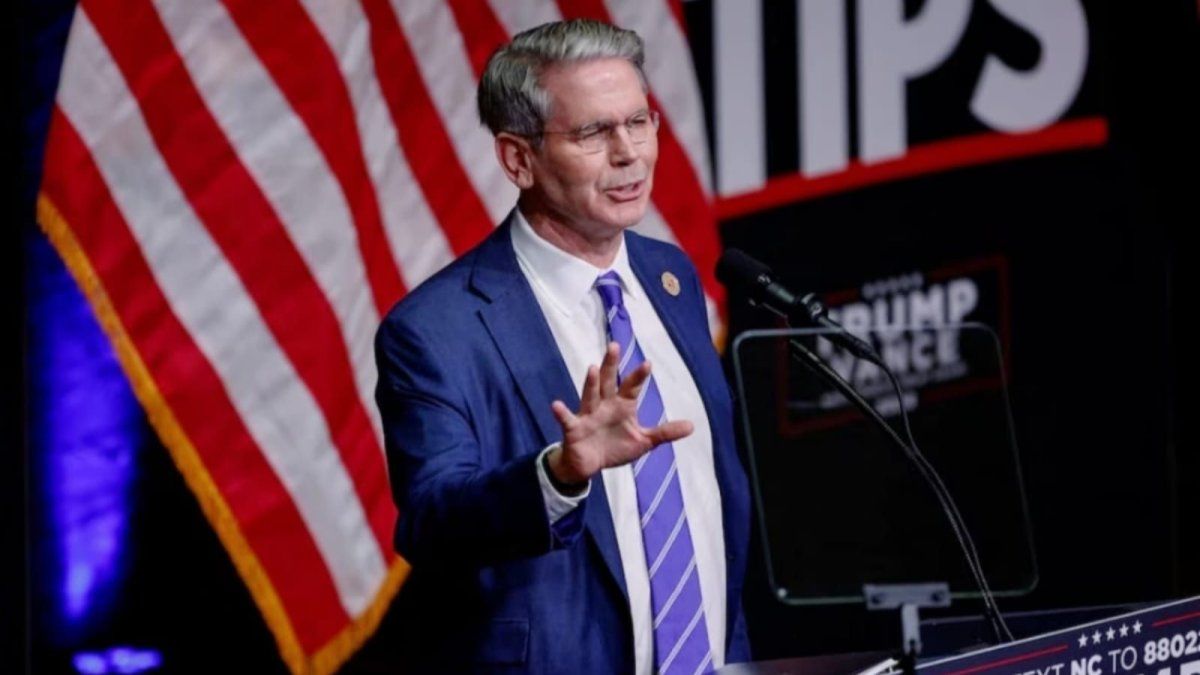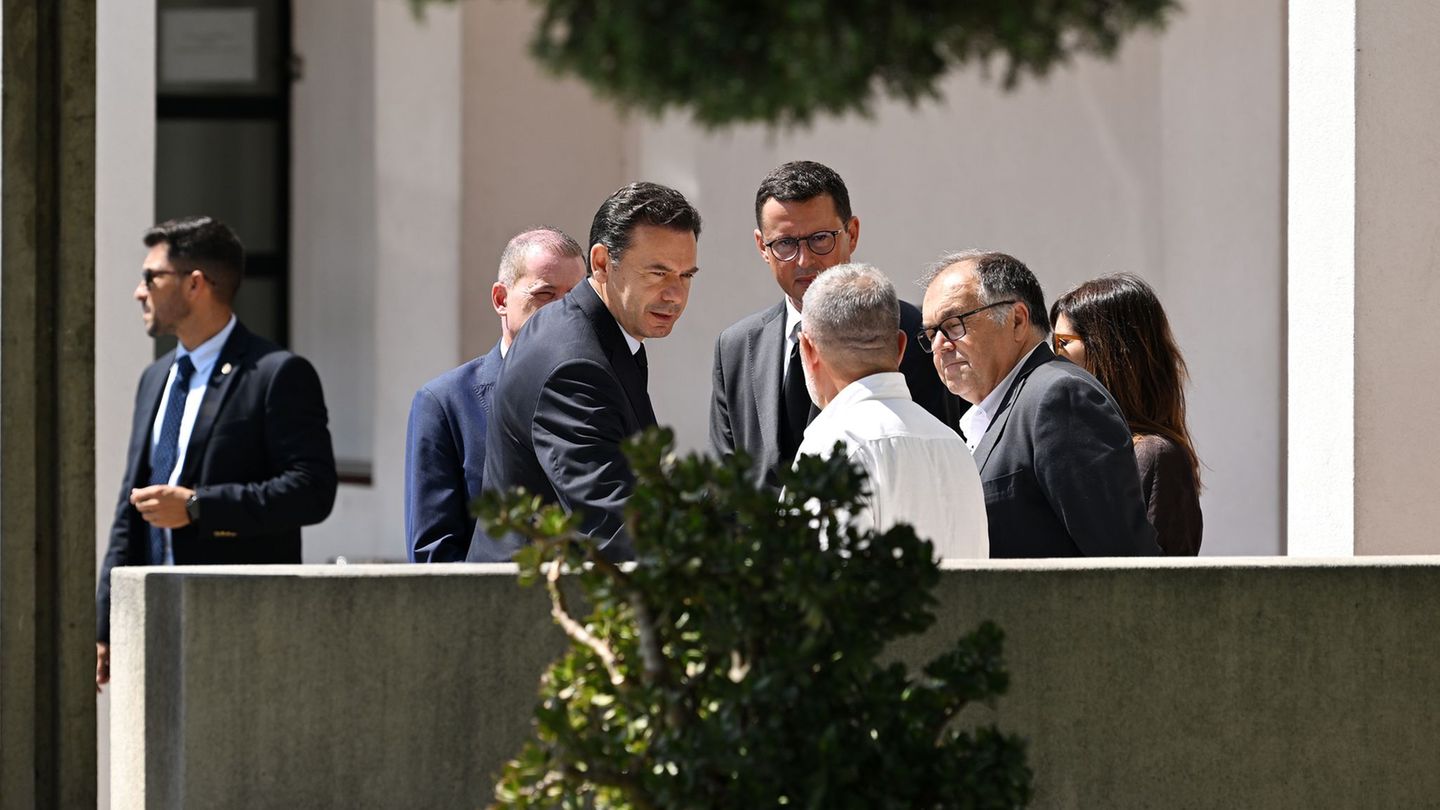Donald Trump has nominated veteran investor Scott Bessent to a key position, who will inherit a strong economy and market environment and a few challenges, but will also have to manage the transformative changes promised by the Republican leader.
Donald Trump finally chose Scott Bessent for the position of Secretary of the Treasury. He is a Wall Street veteran who worked for George Soros and is founder of the hedge fund manager Key Square Group. He was a key economic advisor to Trump’s 2024 campaign and beat out other candidates to succeed Trump. Janet Yellen such as Howard Lutnick (CEO of Cantor Fitzgerald and BGC Partners) who leads the Trump-Vance transition team and will be in charge of the Commerce Department, and Kevin Warsh (former Morgan Stanley and former Fed governor).
The content you want to access is exclusive to subscribers.
In his statement on Bessent’s nomination, Trump said economic policy under his administration would maintain the dollar’s reserve currency status, strengthen the United States’ position as the world’s strongest economy and invigorate the private sector. What were the first reactions on Wall Street to Bessent’s nomination? As reported by several specialized media, the markets are betting that Bessent will be a force of stability within the Trump administration.


For starters, investors are pleased that Trump hasn’t made another risky Cabinet appointment, see his experience on Wall Street as a plus, and expect him to adopt measured policies and soften the nuances of Trump’s most bombastic agenda. In the past, Bessent has talked about applying business taxes, a strategy that is less likely to disrupt markets or cause inflation than the one Trump advocated during the election campaign. He also assessed how to return to a 3% budget deficit through deregulation, energy dominance and reprivatization of the economy, and stimulate economic growth. His view explains why US Treasuries continued their rally with 10-year yields falling to 4.3%, meanwhile the dollar weakened against other currencies, reflecting the belief that Bessent will be less enthusiastic than his boss on tariffs.
He is considered a fiscal hawk and in an interview with the Wall Street Journal, Bessent said that his priority will be to implement Trump’s tax cuts, while introducing tariffs and cutting spending; and also maintaining the status of the dollar as a world reserve currency will be a priority objective. The latter is a great challenge since Trump has been pointing out that the US had a currency competitiveness problem in terms of international costs. That is why many wonder how long will the honeymoon last of Bessent, as Trump filled his first administration with Wall Street employees and corporate executives who, in the end, ended up at odds with him.
What does Bessent’s nomination mean for the economy?
Now, what does Bessent’s nomination mean for the economy? First, it’s worth remembering that Bessent made his views increasingly explicit on key policy issues for the next administration, including taxes, deregulation, spending, and trade. Their views were summed up in their support for a three-pronged approach: growth of 3%, budget deficit of 3% of GDP and 3 million more barrels per day of oil production. Bessent will inherit a fundamentally strong economy and market environment, but faces challenges. Inflation remains high, making people angry. Federal budget deficits are projected to remain historically large, requiring record debt issuance. Most critically, he will have to manage the transformative changes promised by the incoming administration: tax cuts and spending reductions, sweeping deregulation, a crackdown on immigration, and a dramatic escalation of tariffs.
Four keys to explain the nomination
In this context, what would be the four key conclusions of this nomination for the economy. To do this, we turn to the analysis of Deutsche Bank strategists led by Matthew Luzzetti.
- A counterweight to tariffs: For the markets, the most important signal of the nomination of the Secretary of the Treasury was the prioritization and consensus around Trump’s tariff promises, since if Trump had promoted former US Trade Representative Lighthizer to the Treasury position, there would have been reinforced the potential of a maximalist approach to trade. Bessent’s recent writings support the use of tariffs, but he is not believed to be a trade hardliner. In general, he has defended tariffs as a negotiating mechanism and has supported a gradualist approach with a substantially forward orientation, going so far as to propose the implementation of 50-60% tariffs on China by increasing them by 2.5 percentage points per month. Bessent’s presence should therefore act as a counterweight to Trump’s more extreme pushes on tariffs, as well as other voices who support these policies (such as Lutnick). Consequently, while Trump is believed to follow through on his campaign promise to increase tariffs, Bessent’s appointment supports the logic of a somewhat more strategic or gradualist approach to trade wars. Said Bessent: “If used strategically, tariffs can increase Treasury revenue, encourage businesses to restore production and reduce our dependence on the industrial production of strategic rivals. For too long, conventional wisdom has rejected the use of tariffs as a tool of economic and foreign policy. However, like Alexander Hamilton, “We should not be afraid to use the power of tariffs to improve the lives of American families and businesses.”.
trump copy.jpg

Donald Trump, president-elect with unknowns about future decisions.
- Deficits and debt management: Bessent has consistently advocated for reducing the federal budget deficit (he wants to reduce it by about half, to 3% of GDP. However, getting to that point is likely to prove difficult. The main route to reducing deficits, in his opinion Bessent, it is through solid growth supported by significant deregulation of the economy However, Bessent has advocated for the expansion of the TCJA (The Tax Cuts and Jobs Act), which will automatically add about 1. percentage point of GDP to deficits in the coming years, which will leave deficits relative to GDP above 6%. On the other hand, although it supports cost-reduction measures such as the repeal of some provisions of the IRA (. Inflation Reduction Act) and freezing non-defense discretionary spending, does not believe this administration should seek savings on the components that are increasingly driving the deficit (spending on mandated items like Medicare, Medicaid, and Social Security , or the costs net of interest determined by the market). Regarding the latter, Bessent has been outspoken about recent debt management practices under the Biden administration, in particular arguing that the Treasury Department under Yellen intentionally shortened the duration of Treasury bond issuance to reduce term premiums and ease financial conditions in order to boost the economy. This criticism could be interpreted as confirmation of his support for extending the duration of the broadcast. That said, analysts wonder whether his recognition of the easing effects of duration reduction could appeal to an incoming administration that will emphasize market performance, particularly stocks. Bessent said: “I think it’s very unfortunate what Secretary Yellen is doing. She’s funding up front and she’s betting on the carry trade, which is not good risk management.”
- Independence of the Federal Reserve: Bessent has sent mixed signals regarding the Fed’s independence. While he argued that concerns about Trump’s comments about the Fed were overblown, he also suggested that Trump should announce Powell’s replacement in advance. According to Bessent, that candidate could take on the role of shadow Fed chair, publicly offering an alternative view on what the Fed should do, possibly informed by the Administration’s motivations. Despite these concerns, it is believed that respect for the Fed’s independence will win out. Bessent’s nomination avoided the possibility of mixed signals about the Fed’s independence that might have been generated by naming Warsh to the Treasury position, while signaling that he would soon take Powell’s place. More importantly, Bessent’s decades-long experience with global markets is expected to eventually lead him to argue for a softer touch at the Fed. With inflation still elevated and deficits projected to remain larger, a challenge direct to Fed independence would risk the return of bond market watchdogs. A sharp rise in interest rates that could accompany these indications would make Bessent’s task of minimizing the cost of debt issuance difficult, while also shaking up global risk sentiment, neither of which is in the administration’s interest. Trump. Bessent said: “You could make the first Fed nomination and create a shadow Fed chair. And based on the concept of forward-looking guidance, no one will really care what Jerome Powell has to say.”
- He has promoted a strong dollar: The first Trump administration sent mixed signals about the value of the dollar. Trump had argued that the dollar was “too strong” and was hurting American businesses. In a similar vein, then-Treasury Secretary Mnuchin said a weak dollar was good for the economy. Support for a weaker dollar was consistent with the administration’s desires to improve the competitiveness of American businesses, ultimately leading to a smaller trade deficit. By contrast, in a recent comment, Bessent touted the rise in the value of the dollar since Trump’s election, noting that it reflects “the dollar as the world’s reserve currency.” He also acknowledged that higher tariffs will tend to increase the value of the dollar, calling the result of tariffs and a weak dollar “an economic anomaly.” While he has pointed to a possible market-based path to a weaker dollar (a clear disinflation that allows interest rates to fall), he argued that “in terms of a too-weak dollar policy, I wouldn’t expect that at all.” Bessent said: “Trump’s election fueled the dollar’s largest daily rise in more than two years and the third largest in the last decade. This is a vote of confidence in US leadership internationally and in the dollar as a reserve currency. world”.
Source: Ambito
David William is a talented author who has made a name for himself in the world of writing. He is a professional author who writes on a wide range of topics, from general interest to opinion news. David is currently working as a writer at 24 hours worlds where he brings his unique perspective and in-depth research to his articles, making them both informative and engaging.




